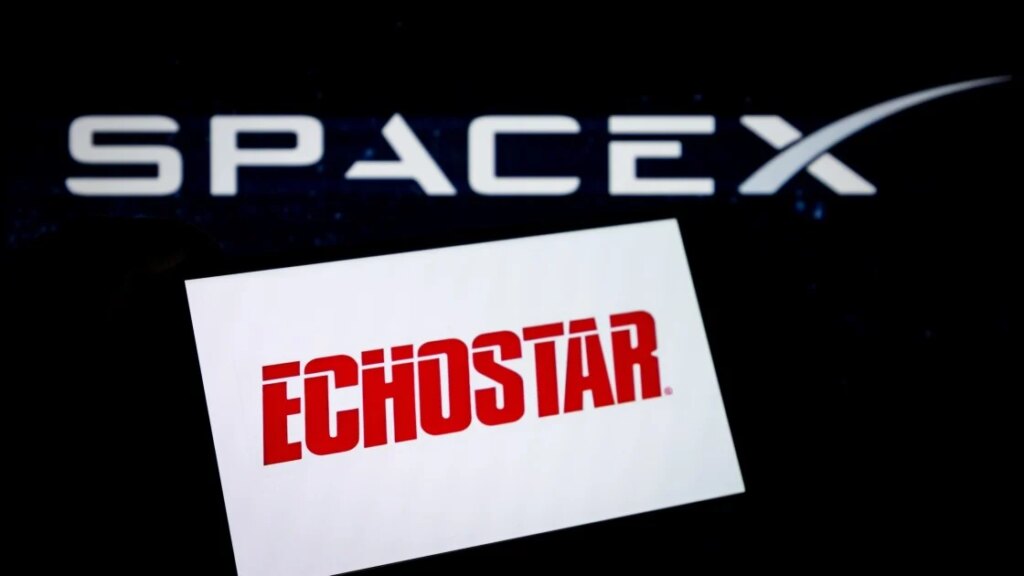Don’t miss out on our latest stories. Add PCMag as a preferred source on Google.
Two months after announcing a $17 billion deal for spectrum, SpaceX has decided to buy another slice of radio airwaves from Boost Mobile’s parent, EchoStar.
On Thursday, EchoStar announced that it would sell its unpaired AWS-3 (Advanced Wireless Service) license for approximately $2.6 billion in exchange for SpaceX stock.
The AWS-3 license covers the 1695-1710MHz radio spectrum in the US for data uploads. The deal is surprising because Verizon was also in talks to acquire the spectrum from EchoStar to help it carry 5G wireless signals, according to Bloomberg.
Instead, SpaceX swooped in to buy the spectrum, following September’s $17 billion deal to acquire exclusive use of EchoStar’s 2000–2020, 2180–2200, 1915–1920, and 1995– 2000MHz bands for the US and worldwide.
So far, SpaceX hasn’t commented on the deal. However, EchoStar is indicating that the company will utilize all the acquired spectrum, including the latest AWS-3 license, to bolster SpaceX’s cellular Starlink system, the company’s effort to use satellites to beam connectivity to consumer phones.
That system is already available through T-Mobile. But it’ll soon expand to EchoStar’s Boost Mobile as part of September’s radio spectrum deal with SpaceX. Thanks to the EchoStar spectrum, the cellular Starlink system promises a significant boost in capability, enabling it to beam even more data to phones, and making it comparable to 4G LTE, according to SpaceX. CEO Elon Musk has even floated the idea of competing with rival carriers through a standalone cellular Starlink system
Recommended by Our Editors
That said, SpaceX needs a few years to help the phone industry adopt the EchoStar radio bands. “Since these frequencies are not supported in current phones, the chipset has to be modified to add these frequencies. And that is probably a two-year timeframe,” Musk said in September.
In contrast, the acquired AWS-3 1695-1710MHz band is interesting because some phones, including the latest iPhones, already support it through the n70 band, which satellite industry analyst Tim Farrar pointed out.
As for EchoStar, the company has been selling its radio spectrum after abandoning plans to become a major wireless carrier in the US to rival AT&T, Verizon, and T-Mobile. CEO Hamid Akhavan says the nearly $20 billion in cash and SpaceX stock from the two deals “will strengthen EchoStar’s ability to develop new business opportunities and growth in value for our shareholders.”
Get Our Best Stories!
A Smart, Bold Take on the Wireless World
Sign up for the Fully Mobilized newsletter to get our top mobile stories delivered right to your inbox.
Sign up for the Fully Mobilized newsletter to get our top mobile stories delivered right to your inbox.
By clicking Sign Me Up, you confirm you are 16+ and agree to our Terms of Use and Privacy Policy.
Thanks for signing up!
Your subscription has been confirmed. Keep an eye on your inbox!
About Our Expert
Michael Kan
Senior Reporter
Experience
I’ve been a journalist for over 15 years. I got my start as a schools and cities reporter in Kansas City and joined PCMag in 2017, where I cover satellite internet services, cybersecurity, PC hardware, and more. I’m currently based in San Francisco, but previously spent over five years in China, covering the country’s technology sector.
Since 2020, I’ve covered the launch and explosive growth of SpaceX’s Starlink satellite internet service, writing 600+ stories on availability and feature launches, but also the regulatory battles over the expansion of satellite constellations, fights with rival providers like AST SpaceMobile and Amazon, and the effort to expand into satellite-based mobile service. I’ve combed through FCC filings for the latest news and driven to remote corners of California to test Starlink’s cellular service.
I also cover cyber threats, from ransomware gangs to the emergence of AI-based malware. Earlier this year, the FTC forced Avast to pay consumers $16.5 million for secretly harvesting and selling their personal information to third-party clients, as revealed in my joint investigation with Motherboard.
I also cover the PC graphics card market. Pandemic-era shortages led me to camp out in front of a Best Buy to get an RTX 3000. I’m now following how President Trump’s tariffs will affect the industry. I’m always eager to learn more, so please jump in the comments with feedback and send me tips.
Read Full Bio

